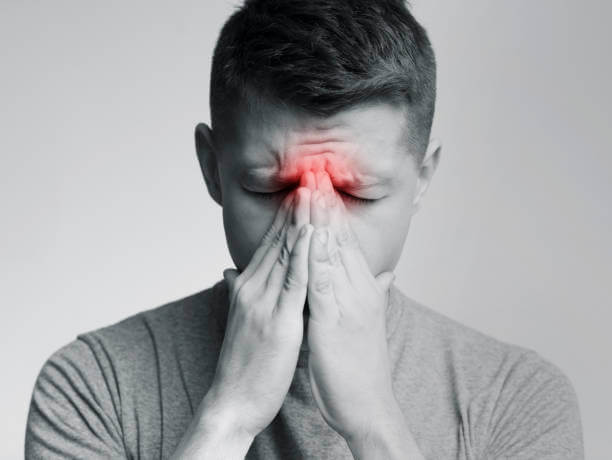Sinus infection is a complicated condition that involves a lot of organs. A sinus infection can occur in any one or more of the sinuses in your head. You should consult an ENT specialist if you have any sinus-related complications, as they will be able to identify the problem and suggest the best treatment option.
What is Sinus Infection?
Sinus infection is an infection of the sinuses. There are several hollow spaces inside each of the face’s bones known as sinus cavities. They give you the ability to smell, eat and speak. When a person has a sinus infection, it refers to an inflammation in the tissues of the face cavity.
Types of Sinus Infections
There are two forms of a sinus infection:
Acute Sinusitis
Acute sinusitis is a viral or bacterial infection that causes congestion, runny nose, and forehead tenderness. Acute sinus infections are usually short-term. Their duration can last from a few days to eight weeks.
Chronic Sinusitis
Chronic sinusitis refers to a sinus infection that lasts for more than three months. Sometimes chronic sinusitis is referred to as ‘chronic rhinosinusitis.’ Chronic sinusitis occurs when inflammation in the nasal passages goes on for three months or more. It may occur due to allergy, exposure to pollutants, infection from a bacteria/ fungal growth in the nose, or even injury from an accident.
Symptoms of Sinus Infection
They include:
1. Sinus Headaches
Sinus headaches typically occur behind the eyes or between the eyebrows and can be very painful to endure. Congested sinuses cause pressure on the nerves inside the skull, particularly in the forehead region where sinuses are located. The condition causes pain and discomfort in the head that can last all day long.
2. Pain in Your Sinuses
Sinus pain can vary in intensity. It could be anything from mild toothache-like pain to an unbearable throbbing, depending on the severity of your sinus infection. The pain is very often one-sided (in one particular area of your nose), although it’s also possible for you to experience pain on both sides of your nasal passage.
3. Sore Throat and Hoarse Voice
Sore throat is a noticeable symptom of sinus infection. It results from swollen and inflamed nasal passages that block air free movement, causing soreness or burning sensation behind the throat.
4. Nasal Discharge
When you have a sinus infection, your nasal passages become inflamed and swollen. The situation causes mucus to flow freely through your nose, forcing you to blow your nose repeatedly. You may be able to see snot in your handkerchief or tissue after blowing. The color will be yellow and very thick.
5. Nasal Congestion
The common term “stuffy nose” refers to nasal congestion, a condition caused by inflammation within the nasal passages that prevent the free circulation of air. The swelling causes an uncomfortable feeling which can get even painful at times.
How Do You Treat Sinus Infection?
Treatment for sinusitis or sinus infection include:
- Antibiotics – Antibiotics treat infections and may be used to ease a sinus infection. Antibiotic therapy for sinusitis lasts from 3 to 26 days. It may take longer to treat patients with longer-lasting or more severe symptoms due to the deep-seated location and limited blood supply.
- Decongestants – taken orally, help relieve nasal congestion and clear up nasal passages as long as you do not take them for more than four days.
- Nasal saline washes – relieve sinus infection symptoms by reducing the inflammation and swelling of your nose. For a nasal saline wash, put some saline solution in a large medical syringe, a squeeze bottle, or a nasal cleansing pot. Insert the tip into the nostril, and squeeze gently. Make sure the saline solution is directed towards the back of the head and not toward the top.
- Antihistamines: Antihistamines block the effects of histamine, a chemical released by the immune system in response to an allergen. Antihistamines can be taken orally or put on the skin.
- Surgery: Surgical intervention may be recommended as a last resort if drug therapies are unsuccessful. Surgery is typically performed to correct anatomical defects. An otolaryngologist usually performs it.
When to See a Doctor for Sinus Infection
See your doctor right away whenever you’re experiencing a fever, nasal discharge, congestion, or facial pain that keeps recurring. The doctors at Angleton ER will quickly identify the underlying problem and recommend an appropriate treatment for you.


